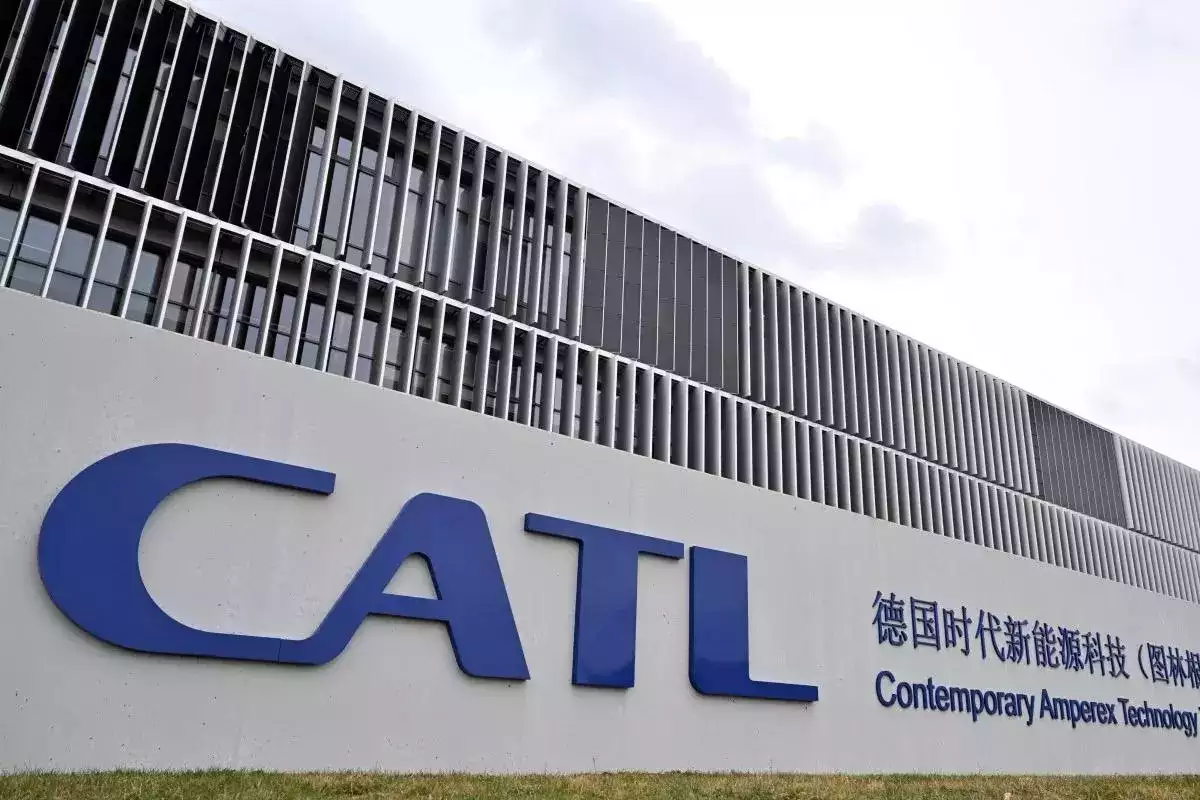U.S. lawmakers are pushing for a thorough review of a licensing agreement between Ford Motor Company and the China-based firm CATL. This deal would enable Ford to manufacture battery cells developed by CATL at a new $3.5 billion facility planned for Michigan.
In a letter sent Thursday to Ford CEO Jim Farley, leaders of the House Select Committee on the Chinese Communist Party (CCP) and the House Ways and Means Committee requested that Ford provide a copy of the licensing agreement.
They also asked for any correspondence regarding the deal between Ford and CATL, as well as communications between Ford and the Biden administration about potential tax credits.
The letter raises several concerns, including the ratio of American to Chinese workers at the plant, the eligibility of the deal for federal tax funding, CATL’s possible connections to forced labor, and whether the agreement will help reduce U.S. reliance on China for electric vehicle parts and materials.
Ford’s Michigan plant is set to open in 2026, employing around 2,500 people, according to the automaker. The plant will produce new lithium iron phosphate (LFP) batteries, which are less expensive than the nickel cobalt manganese batteries currently used.
These new batteries are expected to provide various benefits at a lower cost, which will support Ford’s efforts to boost electric vehicle (EV) production and profit margins.
Ford is following the lead of EV market leader Tesla by incorporating LFP batteries into some of its vehicles, partly to minimize the use of cobalt in battery cells and high-voltage battery packs.
According to the letter, a portion of the 2,500 jobs planned for the Ford plant will be filled by CATL employees from China until the licensing agreement expires in 2038.
The lawmakers expressed concern that despite U.S.-based Ford employees managing the project, its long-term operation will depend on CATL workers from China.
Since the deal’s announcement in February, Ford has vigorously defended it, emphasizing that the company is merely licensing CATL’s processes for its Michigan facility, which will be a wholly owned subsidiary of Ford, creating thousands of American jobs.
Ford spokesman T.R. Reid stated on Friday that the company is reviewing the lawmakers’ letter but refrained from commenting directly on its content.
Reid noted that much of the information being circulated about the project is incorrect, highlighting that Ford is investing $3.5 billion to produce the batteries domestically, rather than sourcing them from suppliers in Asia like other automakers.

This investment is expected to create 2,500 new American jobs and is beneficial for customers, the country, and the company.
Ford officials anticipate that the battery cells produced at the Michigan plant will qualify for federal incentives under the Biden administration’s Inflation Reduction Act (IRA).
These incentives include credits of $35 per kilowatt hour produced and $10 per module. In May, Ford stated that the plant is expected to have an annual output of approximately 42 gigawatt hours once fully operational.
The partnership between Ford and CATL has faced criticism from some Republican lawmakers, including Sen. Marco Rubio and Rep. Jason Smith, chairman of the House Ways and Means Committee.
Smith co-signed the recent letter with Rep. Mike Gallagher, who chairs the House Select Committee on the CCP.
Gallagher has been leading several investigations into U.S.-China business relations, recently questioning why American companies continue to engage with Chinese firms despite the Chinese Communist Party’s alleged human rights abuses and military actions.
Gallagher emphasized that partnering with Chinese companies effectively means partnering with the CCP.
Rep. Jason Smith had previously sent a letter to Ford CEO Jim Farley in April, requesting detailed information about the CATL deal. The new letter states that Farley’s earlier responses lacked the detail sought by the committee.
CATL has connections to Xinjiang Lithium, a company linked to forced labor practices in the Xinjiang region, through its former senior manager Guan Chaoyu.
Guan purchased Xinjiang Lithium through a limited partnership after CATL divested a 23.6% stake in the company shortly after announcing the licensing agreement.
The lawmakers noted that Xinjiang Lithium, which aims to become the world’s largest lithium carbonate producer, is associated with companies that engage in state-sponsored labor transfer programs in Xinjiang.
Workers in these programs are often transferred directly from camps to factories and subjected to constant surveillance.







Leave a Reply